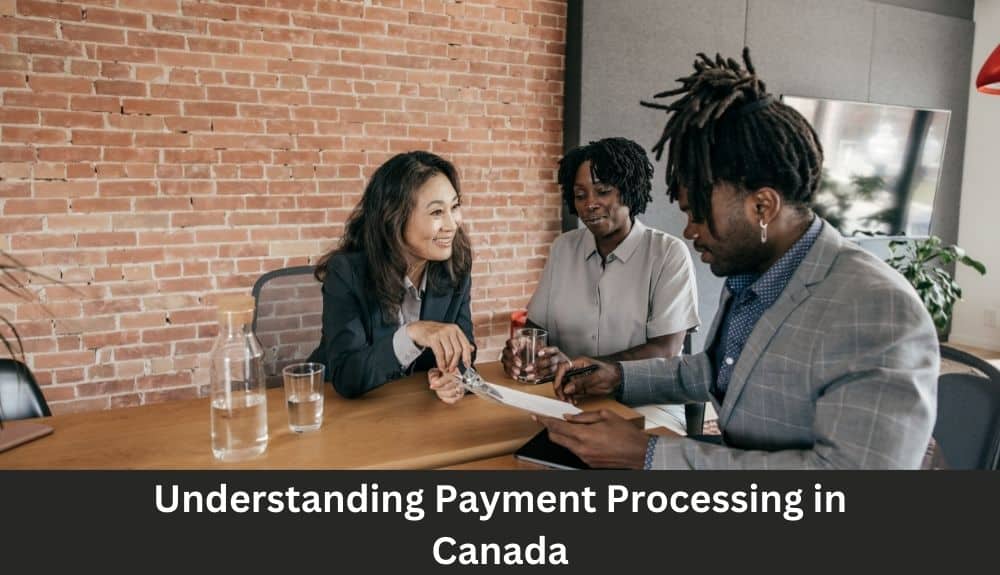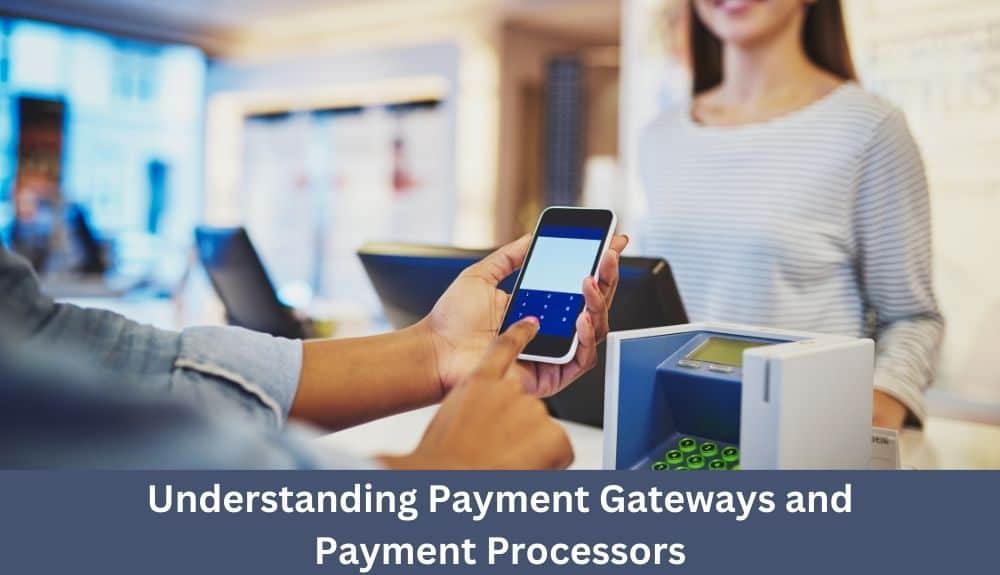
Top Payment Processors in Canada: Which One is Right for Your Business?
- 02nd Jan, 2024
- | By Jeremy
- | News,Businesses
Are you a Canadian business owner looking for the right payment processor? As the backbone of modern commerce, choosing the best payment processor is a critical decision that can impact your success. With a plethora of options available, it can be overwhelming to find the perfect fit for your unique needs. That’s where we come in.
In this comprehensive guide, we will explore the top payment processors in Canada, helping you make an informed choice to meet your specific requirements. We’ll delve into key factors such as fees, customer support, and compatibility with your business model. From small businesses to large enterprises, our list includes trusted names with years of transaction processing experience.
Whether you need a payment gateway integration, mobile payment solutions, or a virtual terminal, we’ve got you covered. Join us on this journey as we navigate the world of Canadian payment processors and help you find the best solution that aligns with your business goals.
Take the first step towards seamless transactions and explore our list of leading Canadian payment processors today.
Introduction to Canadian Merchant Accounts
When it comes to running a business in Canada, having a reliable merchant account is essential for smooth payment processing. A merchant account enables businesses to accept credit and debit card payments from their customers, both in-store and online.
Choosing the right merchant account is crucial as it directly impacts your business’s financial operations and customer experience. Here are some factors to consider when selecting a Canadian merchant account:
1. Fees: Different payment processors charge varying fees, including transaction fees and monthly fees. It’s important to understand the fee structure and assess how it aligns with your business’s budget and transaction volume.
2. Customer Support: Reliable customer support is crucial for timely assistance and issue resolution. Look for payment processors that offer accessible and responsive customer support, whether it’s through phone, email, or live chat.
3. Compatibility: Ensure the merchant account integrates seamlessly with your existing point-of-sale (POS) system or e-commerce platform. Compatibility ensures a smooth transaction process and streamlined operations.
4. Security Measures: Payment security is of utmost importance to protect sensitive customer data and maintain trust. Look for payment processors that offer robust security measures, such as encryption and fraud prevention tools.
5. Payment Options: Consider the payment methods your business wants to offer, such as accepting major credit cards, debit cards, and alternative payment options like digital wallets. Choose a merchant account that supports the payment methods preferred by your customers.
By carefully evaluating these factors, you can choose a merchant account that caters to your business’s specific needs, providing a seamless payment experience for your customers. In the following sections, we will explore more about payment processing in Canada and the best payment processors and gateways available in the country.
Understanding Payment Processing in Canada
Payment processing is a crucial aspect of any business operation, especially in today’s digital landscape. In Canada, understanding the basics of payment processing is essential for businesses looking to accept payments from customers efficiently and securely. Let’s explore the key aspects of payment processing in Canada, including accepted payment methods and credit card processing fees specific to the country.
Accepted Payment Methods in Canada
Canadian businesses have access to a wide range of accepted payment methods. The most common payment methods include:
1. Credit Cards: Credit cards are widely used in Canada for both online and in-person transactions. Visa, Mastercard, American Express, and Discover are the major credit card networks accepted by most Canadian businesses.
2. Debit Cards: Debit card transactions are also popular among Canadian consumers. Interac, the leading debit card network in Canada, facilitates seamless and secure transactions for customers.
3. Online Payment Solutions: With the growth of e-commerce, online payment solutions like PayPal, Stripe, and Square are widely used by Canadian businesses to accept payments online.
4. Mobile Wallets: Mobile payment solutions, such as Apple Pay and Google Pay, have gained popularity in Canada. These digital wallets allow customers to make contactless payments using their smartphones or smartwatches.
Credit Card Processing Fees in Canada
When accepting credit card payments, Canadian businesses need to be aware of credit card processing fees. These fees typically consist of a percentage of the transaction value, known as the interchange fee, and a fixed per-transaction fee. The exact fees may vary depending on factors such as the type of credit card, the business’s sales volume, and the payment processor being used.
To ensure cost-effective payment processing, it is crucial for businesses to carefully review and compare the fee structures offered by various payment processors in Canada. By selecting a payment processor that aligns with their budget and sales volume, businesses can optimize their payment processing costs and maximize their profitability.
In conclusion, understanding payment processing in Canada is vital for businesses looking to streamline their payment operations. Businesses must familiarize themselves with the accepted payment methods in the country and consider the credit card processing fees associated with each method. By choosing the right payment processing solutions that align with their specific needs, Canadian businesses can provide their customers with convenient and secure payment options while optimizing their financial operations.
Exploring the Best Payment Gateways in Canada
Choosing the right payment gateway is crucial for any Canadian business looking to accept online payments. In this section, we will explore the 10 best payment gateways in Canada, considering their starting prices, instant deposits, and invoicing capabilities. Whether you run an e-commerce store, a subscription-based service, or a brick-and-mortar shop, finding the right payment gateway can streamline your transactions and enhance the overall customer experience.
1. Stripe
– Starting Price: Stripe offers transparent pricing at 2.9% + 30¢ per successful transaction.
– Instant Deposits: Stripe allows for quick access to funds with its Instant Payouts feature.
– Invoicing Capabilities: Send professional invoices to your customers and track payment statuses effortlessly.
2. PayPal
– Starting Price: PayPal charges a competitive rate of 2.9% + 30¢ per successful transaction.
– Instant Deposits: PayPal offers Instant Transfer for immediate access to your funds.
– Invoicing Capabilities: Create and send customized invoices to your clients in a few simple clicks.
3. Square
– Starting Price: Square offers transparent pricing at 2.9% + 30¢ per successful transaction.
– Instant Deposits: Get your funds in your bank account as fast as the next business day.
– Invoicing Capabilities: Easily generate and send invoices to your customers for seamless payment processes.
4. Shopify Payments
– Starting Price: Shopify Payments charges a reasonable rate of 2.9% + 30¢ per successful transaction.
– Instant Deposits: Benefit from daily payouts directly deposited into your bank account.
– Invoicing Capabilities: Manage invoices and payment records effortlessly within the Shopify platform.
5. Authorize.Net
– Starting Price: Authorize.Net offers flexible pricing plans based on your business needs.
– Instant Deposits: Experience timely fund transfers to keep your cash flow steady.
– Invoicing Capabilities: Simplify your invoicing process and keep track of outstanding payments.
6. Payline
– Starting Price: Payline provides customizable pricing options tailored to your business requirements.
– Instant Deposits: Enjoy accelerated fund transfers to optimize your cash flow.
– Invoicing Capabilities: Seamlessly create and manage invoices to streamline your billing process.
7. Moneris
– Starting Price: Moneris offers competitive pricing structures based on the unique needs of your business.
– Instant Deposits: Benefit from next-day funding to maintain a healthy cash flow.
– Invoicing Capabilities: Generate professional invoices and receive payments directly through Moneris.
8. 2Checkout
– Starting Price: 2Checkout provides flexible pricing plans depending on your business model.
– Instant Deposits: Access your funds swiftly with their quick and efficient payout system.
– Invoicing Capabilities: Simplify your billing process and ensure smooth payment collection.
9. Bambora
– Starting Price: Bambora offers customized pricing options designed to suit your business’s financial goals.
– Instant Deposits: Ensure fast transfers to keep your cash flow optimized.
– Invoicing Capabilities: Easily create and manage invoices for a streamlined payment experience.
10. CardinalCommerce
– Starting Price: CardinalCommerce offers pricing plans tailored to your specific business requirements.
– Instant Deposits: Enjoy speedy fund transfers to maintain financial stability.
– Invoicing Capabilities: Simplify your invoicing process and easily track payments.
When choosing a payment gateway, it’s important to weigh the features and pricing offered by each provider against your business’s unique needs. Consider factors such as transaction volume, industry compatibility, customer support, and integration capabilities to make an informed decision. Remember, finding the right payment gateway can significantly enhance your customers’ shopping experience while ensuring a smooth and secure payment process.
In the next section, we will discuss how to choose the right payment processor for your Canadian business based on your specific needs and preferences.
Choosing the Right Payment Processor for Your Canadian Business
When it comes to selecting a payment processor for your Canadian business, it’s important to consider your specific needs and requirements. By carefully evaluating features and functionalities, you can ensure that you choose a payment processor that aligns with your sales volume and preferred payment methods. Here are some key factors to consider when making your decision:
1. Sales Volume
Before choosing a payment processor, assess your average transaction size and projected sales volume. For small businesses with lower sales volumes, a payment processor that offers competitive transaction fees may be the ideal choice. On the other hand, larger businesses with higher transaction volumes may benefit from a payment processor that offers volume-based pricing or discounted rates.
2. Payment Methods
Consider the payment methods commonly used by your target market and ensure that the payment processor supports these options. While credit and debit cards are commonly accepted, some businesses may also benefit from offering alternative payment methods, such as mobile wallets or bank transfers. Choose a payment processor that provides a variety of payment options to cater to your customers’ preferences.
3. Security Measures
Security is a crucial aspect of payment processing. Look for a payment processor that implements strong security measures, such as encryption and tokenization, to safeguard customer data during transactions. Additionally, consider the payment processor’s fraud prevention measures and whether they offer features like address verification and 3D Secure authentication to mitigate the risk of fraudulent transactions.
4. Integration and Compatibility
Ensure that the payment processor integrates seamlessly with your existing e-commerce platform or point-of-sale system. Check if the payment processor provides plugins or APIs for popular platforms like Shopify, WooCommerce, or Magento. Smooth integration will save you time and effort, allowing for a seamless customer checkout experience.
5. Customer Support
Reliable customer support is essential when it comes to resolving any issues or concerns related to payment processing. Look for a payment processor that offers responsive customer support through multiple channels, such as phone, email, or live chat. A well-trained and knowledgeable support team can assist you in resolving any payment-related challenges promptly.
6. Pricing and Fees
Finally, carefully review the pricing structure and fees associated with each payment processor. Compare transaction fees, monthly fees, and any additional charges such as setup fees or early termination fees. Additionally, be aware of any extra features or premium plans that may incur additional costs. Consider the overall value rather than solely focusing on the lowest fees.
By considering these factors, you can select the best payment processor for your Canadian business. Remember that the needs of each business may vary, so take the time to thoroughly assess your requirements and choose a payment processor that aligns with your goals and preferences.
Understanding Payment Gateways and Payment Processors
Payment gateways and payment processors play crucial roles in the payment processing ecosystem. While they are related, it’s important to understand the differences between the two.
Payment Gateway
A payment gateway acts as a bridge between a merchant’s website or application and the financial institutions that process the payments. It securely captures and transfers customers’ payment information to the acquiring bank for authorization and settlement. Here are some key points to know about payment gateways:
1. Secure Payment Processing: Payment gateways ensure the security of online transactions by encrypting sensitive payment data, protecting it from unauthorized access or fraud.
2. Accepting Multiple Payment Methods: Payment gateways support various payment methods, including credit cards, debit cards, digital wallets, and alternative payment options like PayPal or Apple Pay.
3. User Experience: A good payment gateway offers a seamless and user-friendly checkout experience, allowing customers to make payments with ease.
4. Integration and Compatibility: Payment gateways integrate with popular eCommerce platforms and provide plugins and APIs to facilitate smooth integration with merchants’ websites or applications.
Payment Processor
Payment processors, also known as merchant service providers, are the entities responsible for processing transactions once they are authorized by the payment gateway. Here’s what you should know about payment processors:
1. Transaction Processing: Payment processors handle the actual movement of funds from the customer’s account to the merchant’s account. They initiate refunds, capture settlements, and handle chargebacks.
2. Merchant Account Management: Payment processors often provide merchants with merchant accounts, which are necessary for accepting and collecting funds. These accounts allow businesses to accept credit and debit card payments.
3. Fee Structure: Payment processors charge fees for their services, including transaction fees, monthly fees, and additional charges for services like 24/7 customer support or advanced fraud protection.
4. Reporting and Analytics: Payment processors offer merchants reporting tools to track sales, transaction volumes, and other payment-related data, helping businesses gain valuable insights.
In summary, payment gateways facilitate the secure transfer of payment information, while payment processors handle the transaction processing and management of merchant accounts. Both are essential components of the payment processing ecosystem, working together to ensure smooth and secure online payments.
Remember to choose a payment gateway and processor that align with your business’s needs, taking into consideration factors such as transaction volume, accepted payment methods, and customer support.


